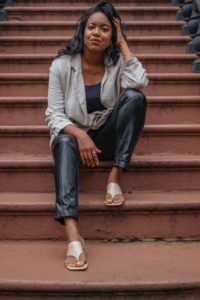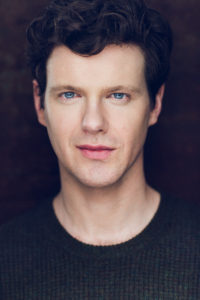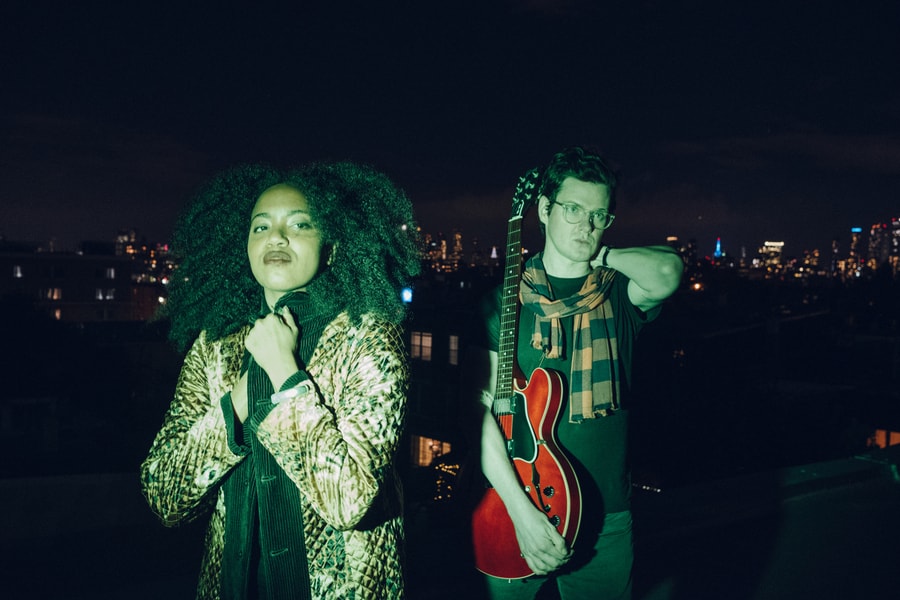Isolation. The runaway theme from 2020 is already bleeding into 2021, with intensified closures and a stuttering vaccine rollout. When all this pandemic madness began, director Whitney White (she/her) was in rehearsals for The Most Spectacularly Lamentable Trial of Miz Martha Washington, by James Ijames, at Steppenwolf Theatre in Chicago, headed for an April and May 2020 run.
Instead, White’s next five months were spent in Chicago, isolated, as she cared for her mother, who was going through chemotherapy. Also during that time, though, White found an unexpected crutch to get her through a difficult year: collaborator and fellow Brown University/Trinity Rep MFA alum Peter Mark Kendall, who happened to reach out to check in on White early on. When, in August 2020, the Public Theater approached White and Kendall for a contribution in this year’s Under the Radar festival, the Public initially wanted the pair to revive their 2015 concert play, Macbeth in Stride, which reimagined the doomed Macbeth couple via vintage music pop and rock from the likes of Ike & Tina Turner and the Doors.
But White felt the need to create something new instead that would speak to the present moment. Capsule, a sort of concert play on film created and performed by White and Kendall, and streaming for free on demand beginning today, is inspired by their experiences over the last year—by their isolation, sure, but also by their connection, and the music and difficult conversations the two had over a tumultuous summer, which White said ultimately intensified their friendship.

“There was just a day where I was like, ‘I can’t not be talking about this and dealing with this. There’s nowhere to hide anymore,’” said White. “So we started file-sharing songs and talking all the time. In the midst of that, the news cycle was punctuating our relationship. George Floyd was a really hard moment for me. And then, of course, Breonna, Ahmad—the kind of cascade of Black death really punctuated my life in a real way.”
The five months between the initial closures and being approached by the Public were filled with text-message chains and “maniacally” writing songs together; White and Kendall both have a music background that predates their moves to directing and acting, respectively, during their MFA studies. Over the months, their conversations ranged widely; one week they might be remotely watching and discussing the John Wick series together, the next might find White feeling the need to just scream about her fear of being brutalized as a Black woman in this country, and her need for Kendall, a white man, to learn and find a way to talk about it with her. The next day might be a conversation about sourdough bread. Ultimately the experience was one of learning what feels safe to communicate to someone, what that person is able to receive, and what can be lost in translation.
“It’s just like reading two people going through therapy and mania and processing and coming to odds with each other at times,” White explained, noting that she has their text history saved to a PDF. “You know, I am a Black woman, he is a white man. We hit this point where we were having conversations we’ve never had before. But it became clear that, in order for us to continue collaborating, these conversations needed to be had. We needed to show up for each other in this way.”
If it weren’t for the pandemic, she mused, Capsule would probably look a lot like a David Byrne music-theatre creation, or Stew and Heidi Rodewald’s Passing Strange, a show White said changed her life. When she’s not directing, she explained, she’s experimenting with the concert play format. But for White, there was one more element to experiment with in this instance: permanence. “When you watch Capsule,” White said, “you’re very much watching a small family of people grapple with a medium that requires permanence, when our art requires impermanence.”
It’s an idea many in theatre have begun to wrestle with, in an age of Zoom and screens. Theatre, by nature, is beautifully fleeting; no two productions, let alone no two performances, are the same, as theatre artists bring their live selves to the theatre every night. Theatre can change. Theatre can, frankly, expire. But what happens when you add cameras to the mix? In a way, Capsule’s exploration of the filmic medium became a way for White and her collaborators to examine the internet age and the disconnect that can be witnessed every day on Twitter, Facebook, and the like. Where is the room for gray areas, Capsule asks us—for nuance in our conversations? Hell, where’s the actual conversation in our conversations these days?
“Once you reveal something, it can never not be revealed.”
With an idea for a show in hand, White reached out to Taibi Magar and Tyler Dobrowsky to co-direct the project. The group started doing Zoom sessions once a week, where Magar and Dobrowsky would give writing assignments to White and Kendall, who would in turn take inspiration from their summer of shared music and texts to write and share new creations and music with the directors. This process progressed until the team quarantined and filmed the 50-minute piece in November. “I called together this team around this text and album,” White said, “and every day was just about how we can bring it to life in as cinematic a way as possible.”

The goal all along was to create a project ambitious and big enough for her collaborators to really sink their teeth into. White pointed out that she sees part of her job as bringing opportunities to artists and building teams and family. This business, after all, is a mutually shared ecosystem, she said. So to explore the material cinematically, Daniel Baker (of the music collective Broken Chord) and Lee Kinney were brought in to handle audio production, Jess Coles to co-direct and be director of photography, and Lowell Thomas to edit. Kendall himself is no newbie in the filmed world, with numerous film and TV credits including The Americans and the upcoming Top Gun: Maverick movie. The creation process, White emphasized, was an all-hands-on-deck situation.
Still, White admits there are some nerves mingled with the excitement of this new experiment. Normally musicals take time to gestate. The piece the Public was originally interested in, Macbeth in Stride, began its life in 2014. And there’s power in the ability to approach the work with the benefit of hindsight—a difficult ask while we are all still very much in the midst of the events that made 2020 such a trial.
“It’s my deep wish that this is a first step for Capsule,” White said, “despite the fact that it kind of locks itself on celluloid in a way. But I reserve the right to revisit it, because I feel like there are reflections in here that I watch, and I know I will be able to emotionally experience that forever, then there’s other things that I’m like, ‘Hmm, will this feel really dated in six months?’”
The way things are going, it very well might not. But more than offer a reflection on the current state of the nation, White is also hoping that Capsule may serve as a release for people. During a time of shutdowns—of living life, as White put it, in prisons we made for ourselves—there is time to reflect and learn and grow, but this has also been a time of being bombarded by a vicious news cycle that permeates every aspect of our lives. This piece is an attempt to stand up for the interior space we all hold dear, to fight for exploratory arts and ambiguity—for anything that encourages people to make their own judgements and think freely.
Capsule is a musical and textual manifestation of these two collaborators, two friends existing in a gray area between Black and white, where they’re able to explore their experiences over the last year freely and honestly. Of course, White and Kendall’s friendship isn’t magically perfect because they made a show together. They still have friction at times, White said. But Capsule sets out to explore what it means to truly connect in a time of isolation, and what it requires to be honest in moments of tension.
“Once you reveal something, it can never not be revealed,” White said. “Ultimately, we’re all so exposed and vulnerable right now. How do you feel safe enough to share? Because it costs to share.”
Jerald Raymond Pierce (he/him) is associate editor at American Theatre. jpierce@tcg.org


